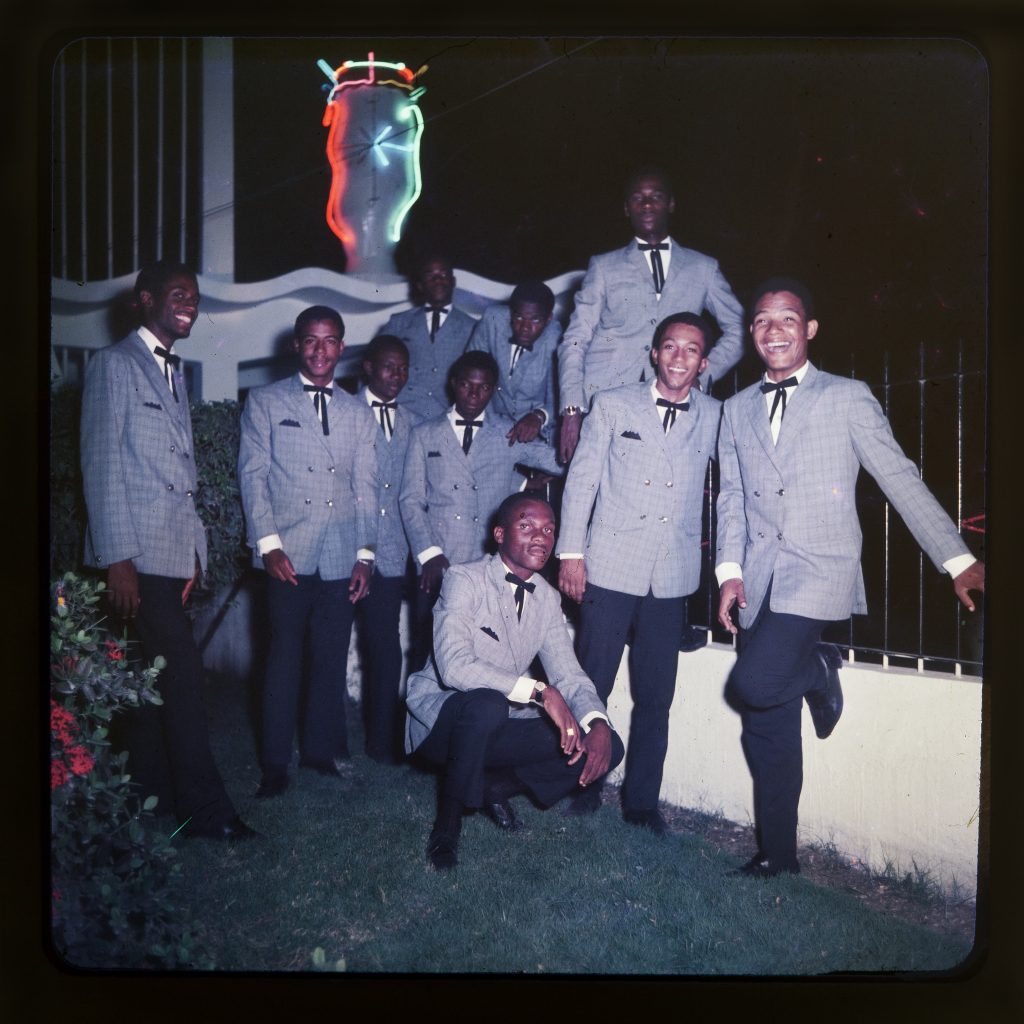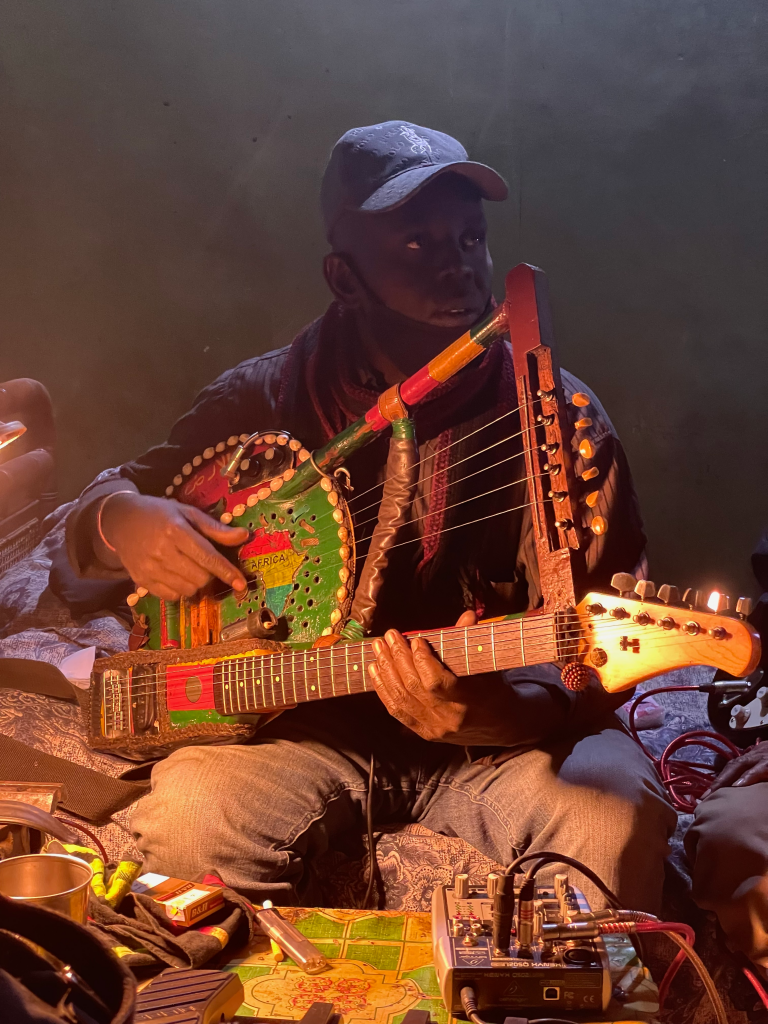
What inspired you to start Ostinato Records?
The vision was to shine a light on very underrepresented, and even demonized countries, with rich ancient and cultural histories, like Somalia, Sudan, Haiti—places that are very central to the world in many ways but are often presented on the margins as hopeless basketcases. Cultures that are pure magic, but have never really had a chance to shine. It was about resetting the narrative in the press, in the world’s imagination, using music, the most powerful storytelling tool there is, far more powerful than writing news reports, making documentaries, or anything similar because music is timeless and indisputable. The goal was to disrupt the world of music in our own way.

You describe your output as ‘the unheard soundtracks of history’, can you tell us a little more about that?
Initially, this was the goal—to reorient the world’s understanding of history through music. If we change how we look at not just our past, but the past of other peoples and cultures, you’ll find it greatly changes our entire sense of the world. And in the courtroom of history, where history is being judged and adjudicated, what greater evidence is there to make your case than music? I can argue that country X is a grand nation, with a rich history that deserves to be recognized but when I present the music as evidence of that, it’s indisputable. There’s no arguing with it and it rapidly transforms our understanding of where the centres of music production are and our very understanding of sound.
But if you’re telling a story, you start with the history to give people a sense of the sound of a country or culture they’ve never heard of. This is best done through panoramic compilations. Once you’ve educated the masses so to speak, you can then begin to zoom in and focus on certain bands or artists—or, even better, produce contemporary albums from the country where the sound is rooted in the old but swaggering with the new. We started as a label focused on the historic, working with archives, which, as a student of history, I absolutely love and find powerful what stories and secrets and revelations are concealed in archives, but the story must advance, it must move forward, so we’ve become a hybrid reissue-contemporary release label.
The goal of any record label should be to do it all—mastering the techniques of working and digitizing an archive as well as pioneering new techniques of recording and creating new music. In the end, a label can’t only reissue older music, it must break new ground too. It must record. It’s in the name-—record label! The greatest labels in history pioneered new ways of recording, production, getting the best out of artists, and that should always be the end goal. Reissues and history remain important—but only if we’re introducing the world to a culture that is deeply unfamiliar. You start with the history but then you move onto the contemporary. That doesn’t mean the sound should change. Our contemporary recordings could easily have been made in the 1970s. One review of our “Dancing Devils of Djibouti” record said if it was recorded in the 1970s, it would’ve been one of those that sell on eBay for thousands of dollars. The past serves as a foundation, but it’s important not to get stuck into it because then you give the world the idea that a country or culture only did good things in the past, which in itself is a harmful narrative, and a detriment to the opportunities of newer artists doing absolutely amazing things.
What’s one of your favourite releases on the label?
It’s easy for me to say Sweet As Broken Dates as that got a Grammy nomination and was our most successful, but in terms of records I look very fondly on because they were something I wanted to do far before I started the label or because they literally were put in front of us by a higher power and turned into something wonderful, I would say Abu Obaida Hassan—what a special record—and Beja Power, which we had no intention of recording when we traveled to Sudan in 2021, but it was so serendipitous and the music, the melodies which are 6000 years old, is just a masterpiece, transportive and ancient.
But at the end of the day, nothing tops your maiden release—Tanbou Toujou Lou—because you do it with a completely innocent, unspoiled attitude. You don’t know what you’re doing, you’re just pouring your heart and soul into it, you’re not thinking of market trends, what the critics will dig, what will garner press, absolutely none of that. There is a very sweet innocence to your first release that it is really important to maintain throughout your tenure as a label, even if the realities of the world force you to make decisions to the contrary.

Do you have any exciting plans for 2023?
We are planning on putting out a record from a remote corner of Africa that we believe will forever transform electronic music. It is a worthy rival to all of the electronic dance sounds emerging from Africa today, and if you ask us, it tops them all. This is our signature—unearthing groundbreaking sounds no one has ever heard before. And when I say no one—almost nobody in the country in question itself has heard it, it is that obscure, but it is an absolute all night, addictive, hypnotic, delicious, cosmic trip. Check out our instagram for a preview video of it!
Lastly, do you have any tips for someone wanting to set up an independent label?
1. Have a grand vision and taste that has quite literally not been experienced or heard. Meeting demand might get you sales but creating demand is a legacy.
2. Learn the music business inside out, literally inside out. If you do this before starting your label, you will be better placed than most to build longevity. Most of us learn as we go and while that’s great and all, entering the business fully educated puts you a step ahead of everybody, even labels who’ve been in the game a long time.
3. How well you deal with people, relationships, and expectations will, in the end, be what sees success or failure. Like raising a child, it takes a village to produce a record.
4. Don’t make it about you, you’re just the messenger. Step back and let the artists, albums, and music speak for themselves.
Keep up to date with Ostinato on: Instagram, Facebook, Twitter, Website, YouTube, Kudos Records.

